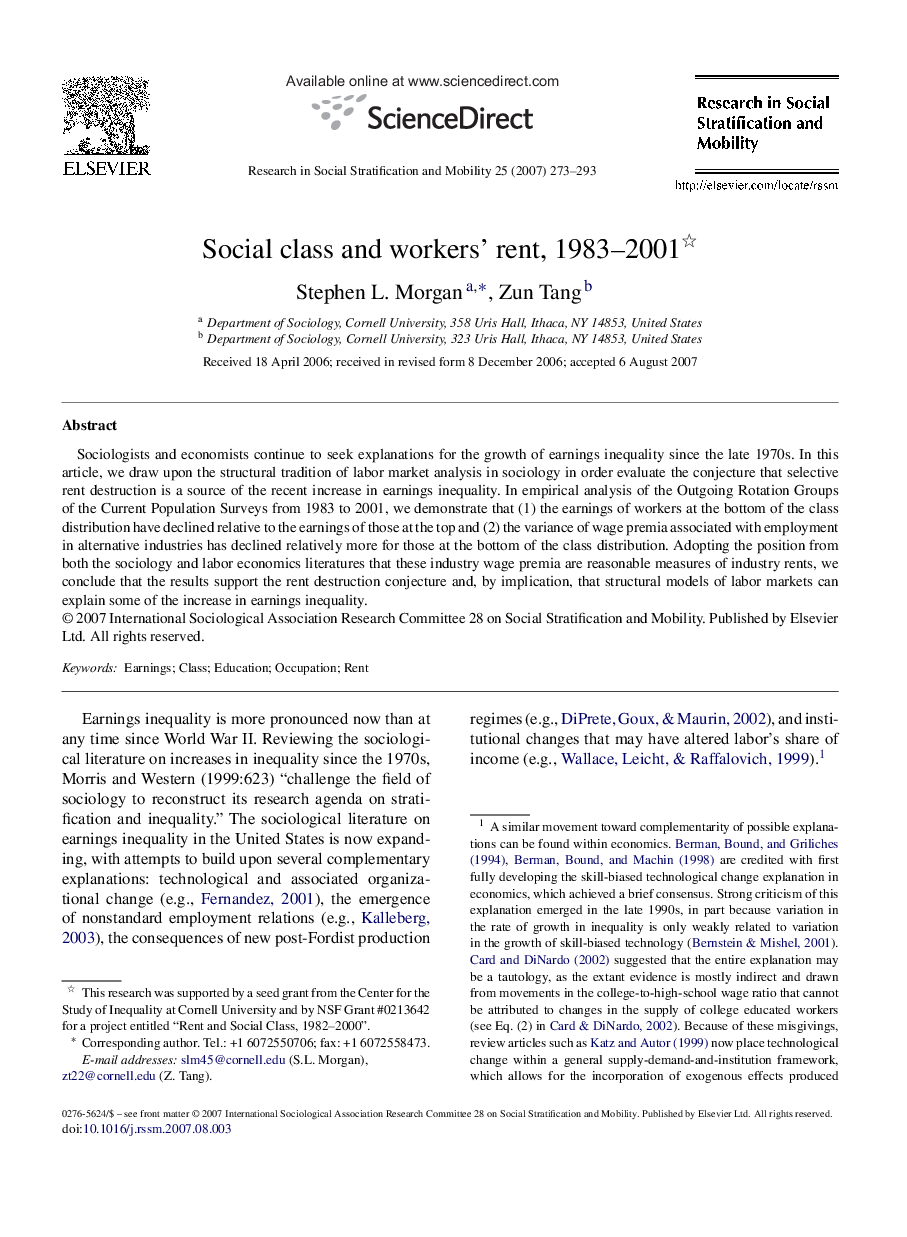| Article ID | Journal | Published Year | Pages | File Type |
|---|---|---|---|---|
| 998639 | Research in Social Stratification and Mobility | 2007 | 21 Pages |
Sociologists and economists continue to seek explanations for the growth of earnings inequality since the late 1970s. In this article, we draw upon the structural tradition of labor market analysis in sociology in order evaluate the conjecture that selective rent destruction is a source of the recent increase in earnings inequality. In empirical analysis of the Outgoing Rotation Groups of the Current Population Surveys from 1983 to 2001, we demonstrate that (1) the earnings of workers at the bottom of the class distribution have declined relative to the earnings of those at the top and (2) the variance of wage premia associated with employment in alternative industries has declined relatively more for those at the bottom of the class distribution. Adopting the position from both the sociology and labor economics literatures that these industry wage premia are reasonable measures of industry rents, we conclude that the results support the rent destruction conjecture and, by implication, that structural models of labor markets can explain some of the increase in earnings inequality.
